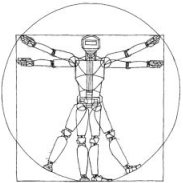Robotics: Science and Systems III
Adaptive Non-Stationary Kernel Regression for Terrain Modeling
Tobias Lang, Christian Plagemann, and Wolfram BurgardAbstract: Three-dimensional digital terrain models are of fundamental importance in many areas such as the geo-sciences and outdoor robotics. Accurate modeling requires the ability to deal with a varying data density and to balance smoothing against the preservation of discontinuities. The latter is particularly important for robotics applications, as discontinuities that arise, for example, at steps, stairs, or building walls are important features for path planning or terrain segmentation tasks. In this paper, we present an extension of the well-established Gaussian process regression approach that utilizes non-stationary covariance functions to locally adapt to the structure of the terrain data. In this way, we achieve strong smoothing in flat areas and along edges and at the same time preserve edges and corners. The derived model yields predictive distributions for terrain elevations at arbitrary locations and thus allows to fill gaps in the data and to perform conservative predictions in occluded areas.
Bibtex:
@INPROCEEDINGS{ Lang-RSS-07,
AUTHOR = {T. Lang and C. Plagemann and W. Burgard},
TITLE = {Adaptive Non-Stationary Kernel Regression for Terrain Modeling},
BOOKTITLE = {Proceedings of Robotics: Science and Systems},
YEAR = {2007},
ADDRESS = {Atlanta, GA, USA},
MONTH = {June},
DOI = {10.15607/RSS.2007.III.011}
}
